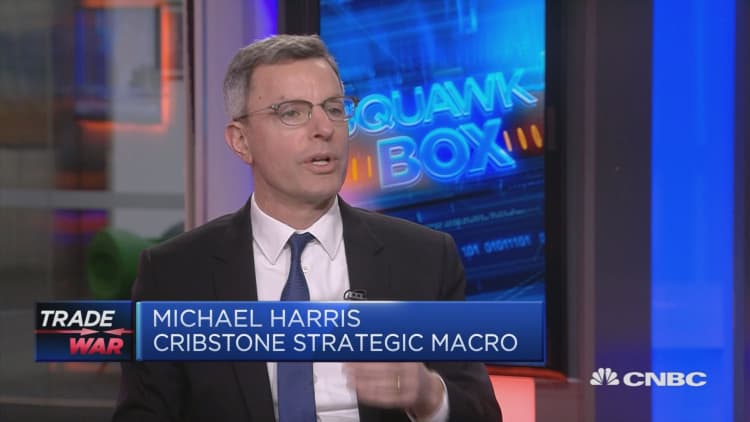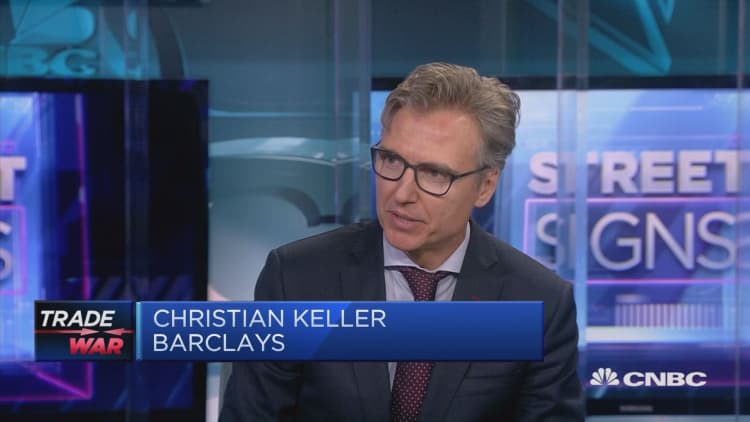
There will an economic recession in the United States if President Donald Trump does not end the ongoing trade impasse with China, a strategist told CNBC on Monday.
Chinese and U.S. officials have gathered in Beijing this week to discuss solutions that will prevent further U.S. tariffs on Chinese goods. Both countries have been at odds regarding their trade policies for most of last year, with President Trump repeatedly announcing new tariffs on Chinese goods and Beijing retaliating at the same scale.
In early December, the U.S. and China agreed to a temporary 90-day ceasefire to allow their negotiating teams to come up with an agreement on trade practices. They have given themselves until March to do so.
However, in case they fail to reach a deal, a strategist believes it would spark a recession.
"If there is a recession and a crash, it is Trump's decision, because he has made a crucial mistake here of closing the government at the same time he hasn't resolved China," Michael Harris, founder of Cribstone Strategic Macro, told CNBC's "Squawk Box Europe."
"If (Trump) doesn't resolve China, he is asking for a recession, I think that's a given because you can't have two major uncertainties at the same time," Harris added.
The U.S. government has been partially shutdown for 16 days, given that the Democrats and Republicans cannot reach an agreement over the funding for Trump's wall on the border with Mexico.
With key national authorities closed, certain services cannot be provided —including delay in processing tax refunds and loan approvals for small businesses by the SBA (Small Business Administration). This increases pressure on the country's economy.
Christian Keller, Head of Economics Research, Barclays told CNBC's "Street Signs" that Beijing and Washington are likely to deliver some positive news to the market over the coming days.
"The longer-term issues regarding technology, all the issues about national security and G5 issues, I think that will take longer and that might not be resolved at all, because we strategically think that this is a clash of giants... But for the short term for the market on specific trade issues I think we will get something over the next coming days," he said.
"(Trump) has reduced his negotiating power with China. If we see a resolution on China, which would be pretty crazy for Trump not to pursue that, because if there is a recession in History it will be called the Tump recession because this is not a required recession," Harris told CNBC.
The U.S. economy grew at an annual pace of 3.4 percent in the third quarter of 2018. The latest jobs report also showed an increase of 312 000 new jobs in December, much higher than expectations.



